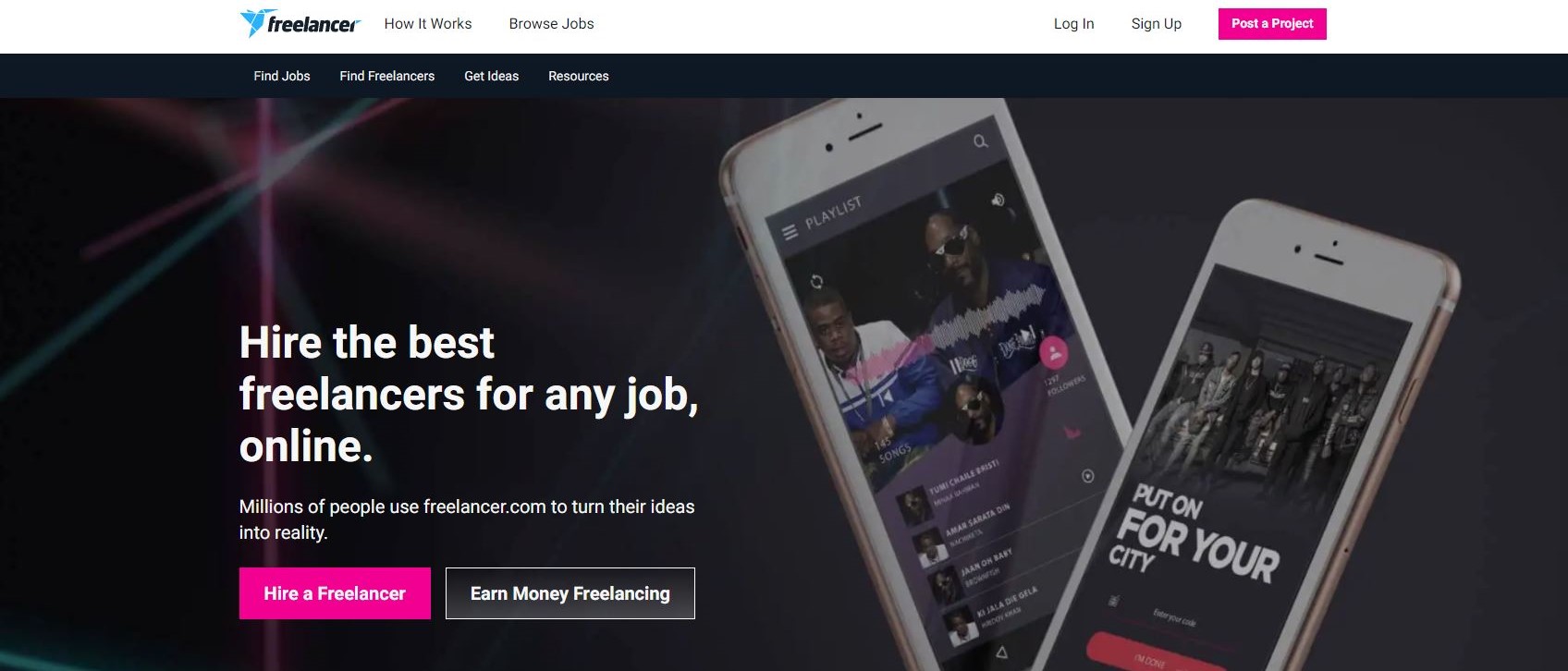TechRadar Verdict
It’s not cheap, but Freelancer.com provides loads of quality, good design, and a vast database of talented users.
Pros
- +
Large, varied user base
- +
Slick, well-designed site
- +
Desktop and mobile apps available
Cons
- -
Potentially expensive
- -
Tricky for new freelancers
Why you can trust TechRadar
Freelancer.com is the biggest player in the world of freelance recruitment, which is no surprise given the name and its history – this job site has been around since 2009.
The numbers don’t lie, with a global pool of more than fifty million users who boast expertise in more than 1800 different skills, and companies like Amazon, IBM, and Google trust the site enough to use it regularly.
Freelancer.com is arguably one of the more expensive freelance marketplaces around, though – so it’s time to find out if it’s worth the cash or if it’s just trading on its enviable reputation.
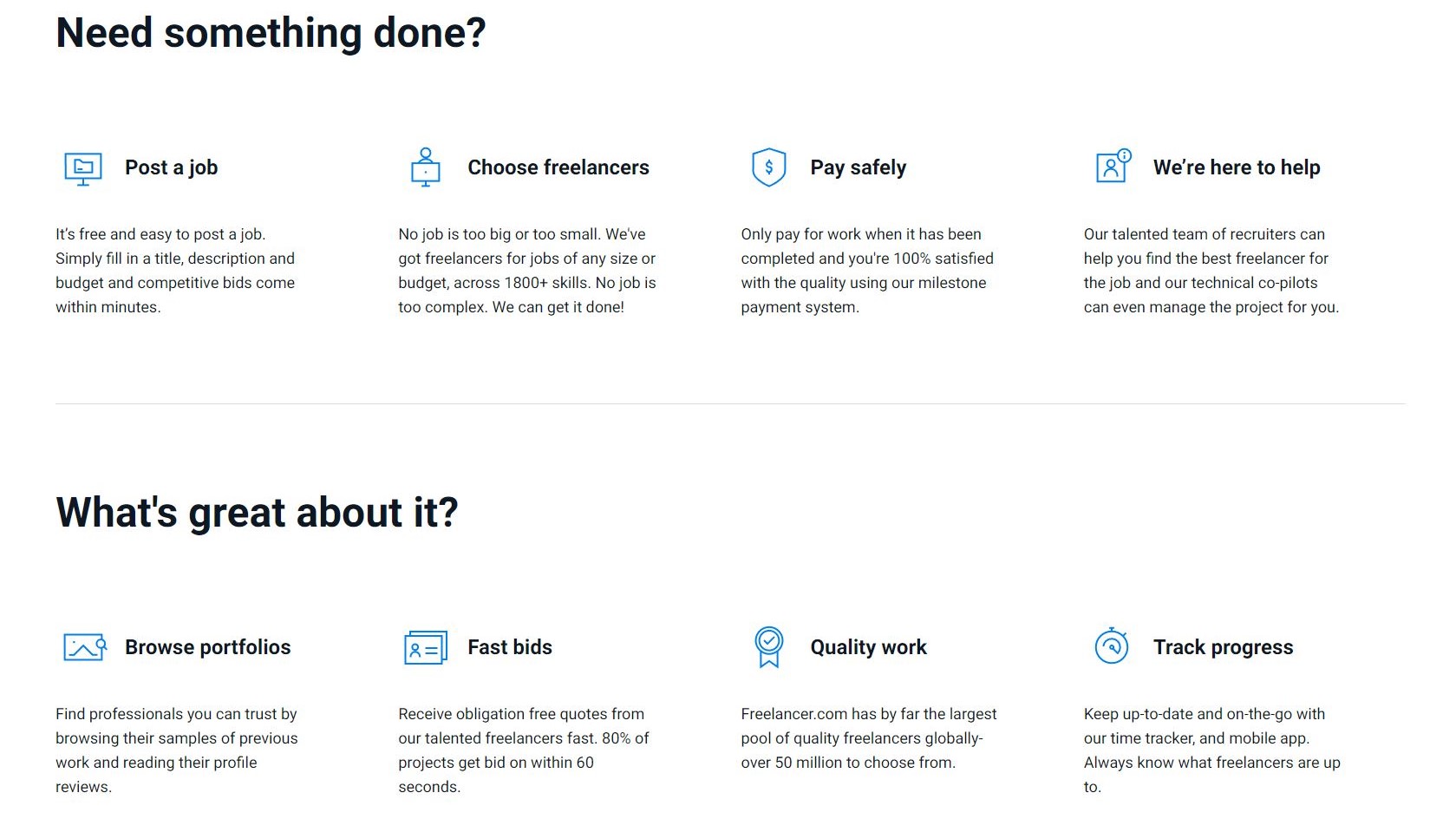
Features
Freelancers can bid for jobs on this site, while employers can list jobs and wait for bids to arrive – it’s straightforward from both sides of the equation.
If you’re a freelancer, the first step is to create your profile and prove your skills. You can upload items to your portfolio, display reviews from happy clients, and add your experience, skills, certifications, and education. It’s essentially a resume, albeit one that’s tailored to freelancers.
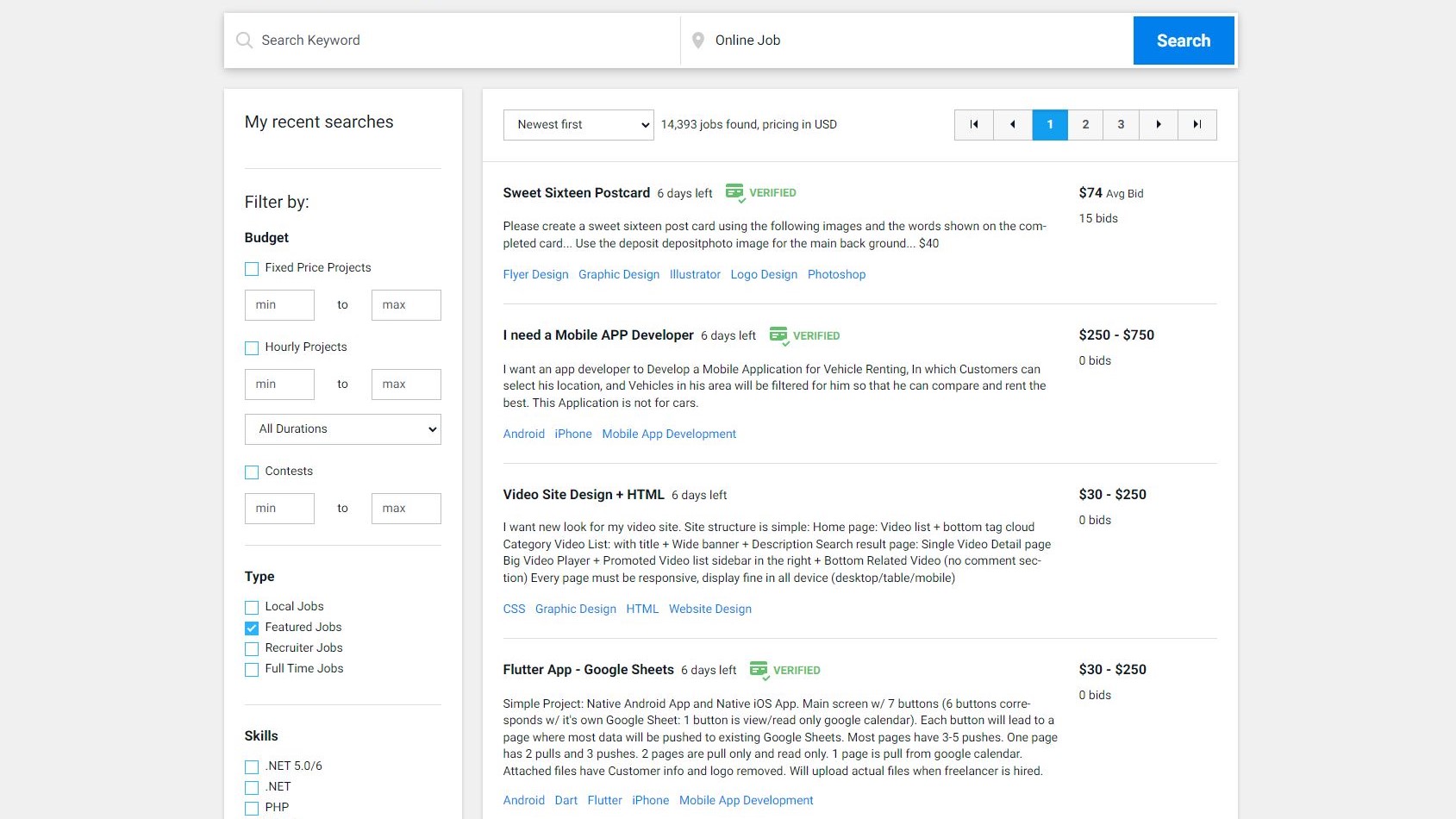
Finding jobs is easy too. You can search for keywords and refine those results with loads of data points. You’re able to choose from fixed-price or hourly rate projects, tasks that need specific skills, and listings that are urgent, under NDA, or featured by particular recruiters. You can filter by location and language, too.
If you want to bid on a project, you need to supply information about what you can bring to the project alongside a price. You can see basic information about the client and see how many freelancers they’ve already contacted. Freelancer.com has contests, too, where you can see people’s public bids for the project and submit your own.
Freelancers can deploy extra features to improve their chances of success on the site. You can become a verified freelancer that displays a blue badge on your profile – and you’ll be able to bid for more expensive projects and work from enterprise clients. This requires photo and phone verification. You can also become a Preferred Freelancer, which means you can access higher-value projects and get invited to bid for exclusive projects.
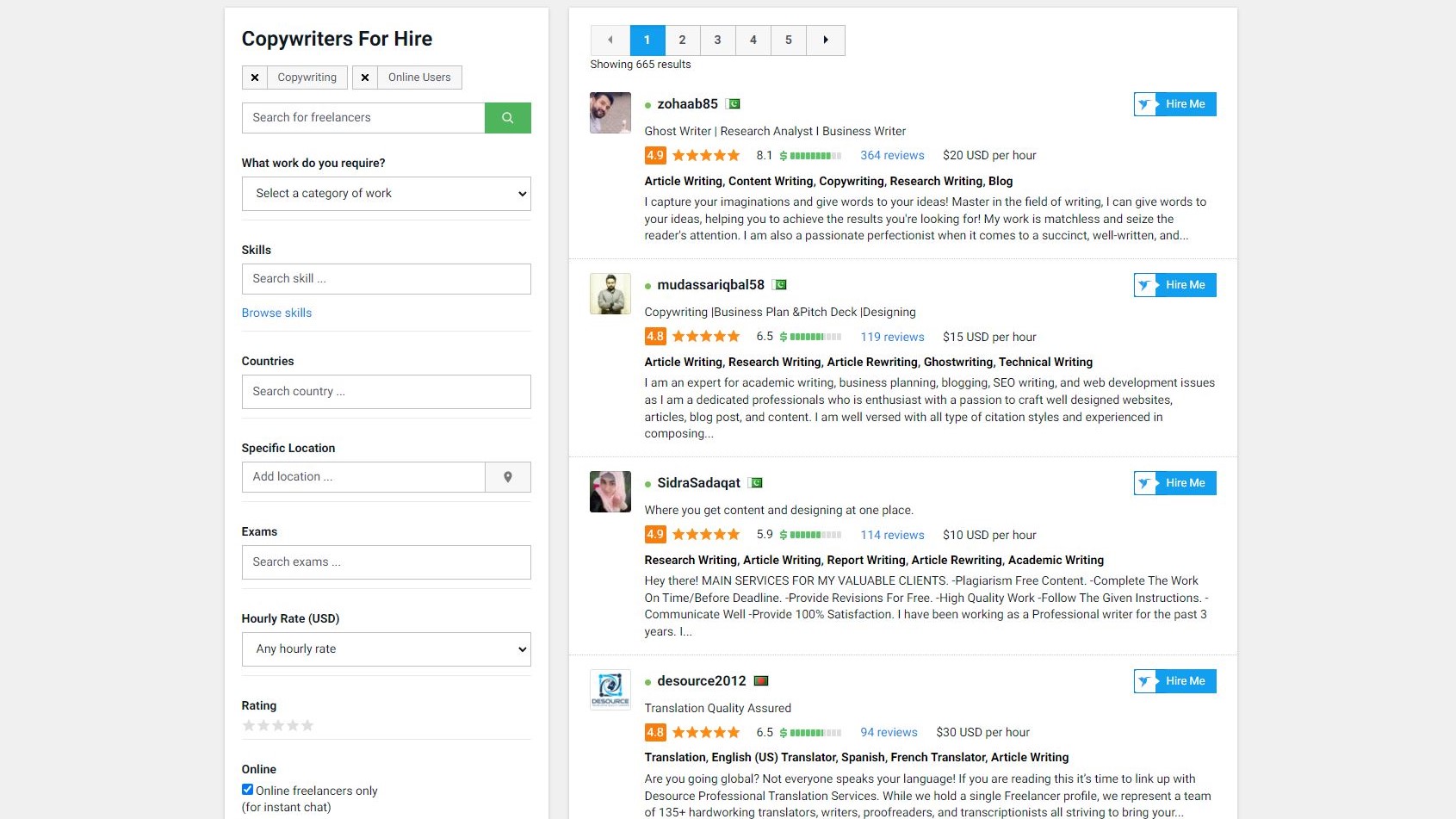
If you want to hire a freelancer, the options for browsing portfolios and posting listings are straightforward. Freelancer.com boasts that 80% of jobs receive bids within sixty seconds, and the site has recruitment and project management experts that can hone your ideas. There are idea-generation modules and utilities for learning, too.
Recruiters only pay when they’re satisfied with the work they’ve received, which adds security, and both freelancers and their clients can make use of Freelancer.com’s Android and iOS apps and its desktop client for communication, project organization, and time tracking.
For freelancers and employers, though, there are some potential pitfalls to remember on Freelancer.com. For freelancers, it can be hard to compete with more experienced hands – you may have to accept low-paying jobs as you build a reputation. If you’re hiring, you may have to scroll through lots of unsuitable bids before you find legitimate, quality workers.
It may be worth considering some of the other freelance marketplaces, too. PeoplePerHour has more location-specific options, for instance, and Upwork has more verification to weed out scammers. Fiverr is more affordable.
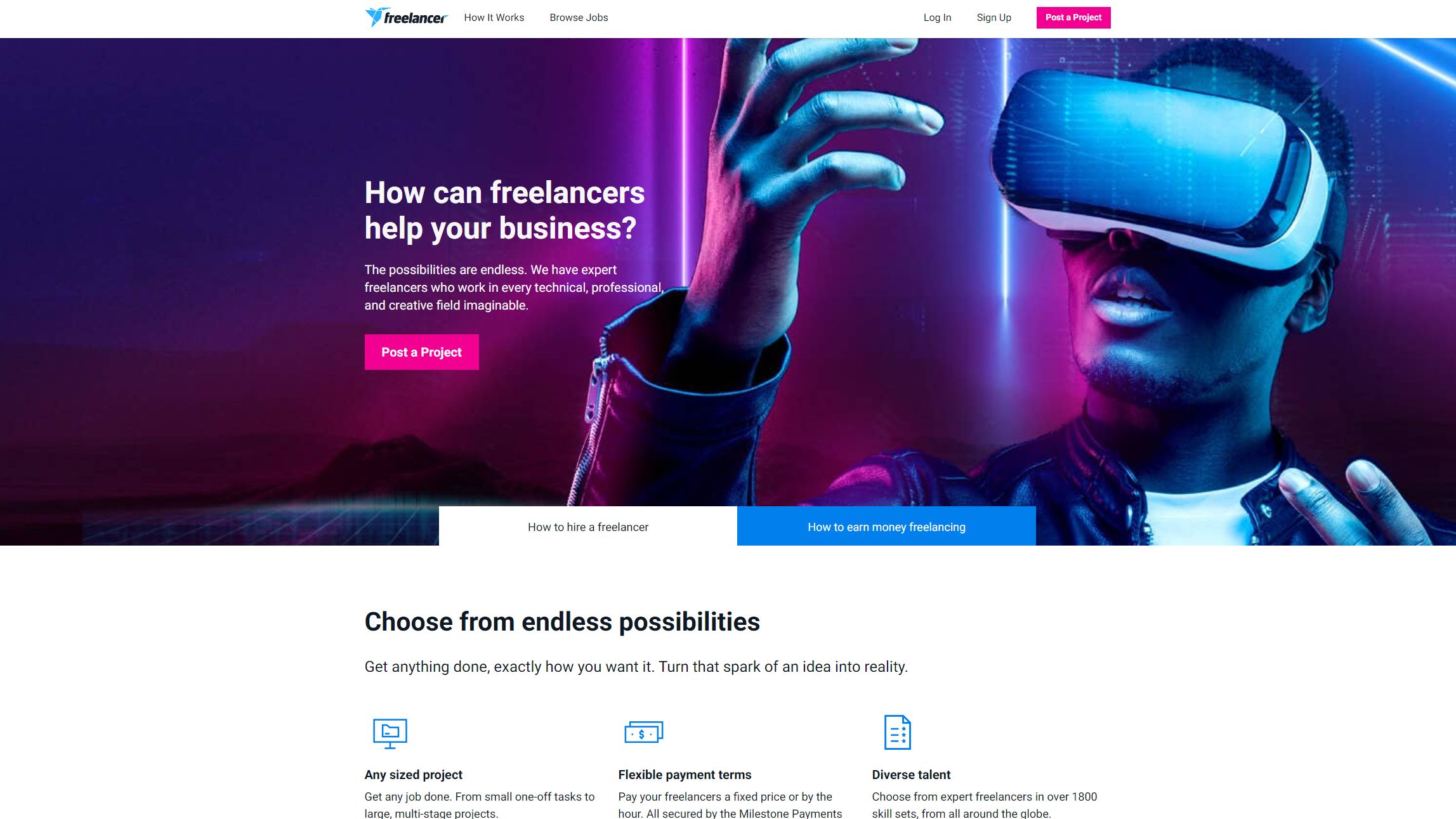
Plans and pricing
Indeed, Freelancer can be a pricey option. If you’re a freelancer and you accept a fixed-price project, you’ll be immediately charged a fee relative to the value of the project – it’s 10% or $5, whichever is higher. If you accept an hourly project, you only pay when it’s completed, and fees are locked at 10%.
If you really want to succeed here, though, you’ll have to spend more. To become Verified, you’ll have to pay $99, and Preferred Freelancers must pay project fees at a higher rate of 15%.
Free members on Freelancer.com can bid on six projects per month, but you only unlock more abilities with paid access tiers. The four levels range in price from $4.95 to $59.95 per month, and they allow freelancers to bid on more jobs, list more skills on their profile, use better client engagement features and deploy more profile customization options.
If you want to hire freelancers, expect to spend money too. There’s a sliding scale of costs depending on the features you want to add to your posted projects and contests, and you’ll have to pay fees for hourly or fixed-price projects at a rate of 3%.
Ultimately, you’ll have to pay more if you want to give yourself a better chance of success on Freelancer.com, and the difference between freelancer and client fees does seem weighted in favor of companies rather than self-employed workers.
Final verdict
Freelancer.com is undoubtedly one of the largest and most impressive freelance marketplaces around. The sheer size of the site’s database means that you can find freelancers with every kind of skill set here, and the entire site is slick, straightforward, and responsive. It’s easy to post a job here, and easy to browse and bid for them if you’re a freelancer.
There’s plenty of expense here, though – if you’re a freelancer, then paying extra grants you far more access, and both sides of the arrangement pay fees.
The high costs and competitive nature of the site mean that Freelancer.com might not be ideal for new freelancers, and the costs can certainly mount. But if you’re an accomplished freelancer or if you want to hire a high-quality worker, Freelancer.com should be at the top of your list.
We've also highlighted the best US job sites, best free job boards and best recruitment platforms
Mike has worked as a technology journalist for more than a decade and has written for most of the UK’s big technology titles alongside numerous global outlets. He loves PCs, laptops and any new hardware, and covers everything from the latest business trends to high-end gaming gear.
